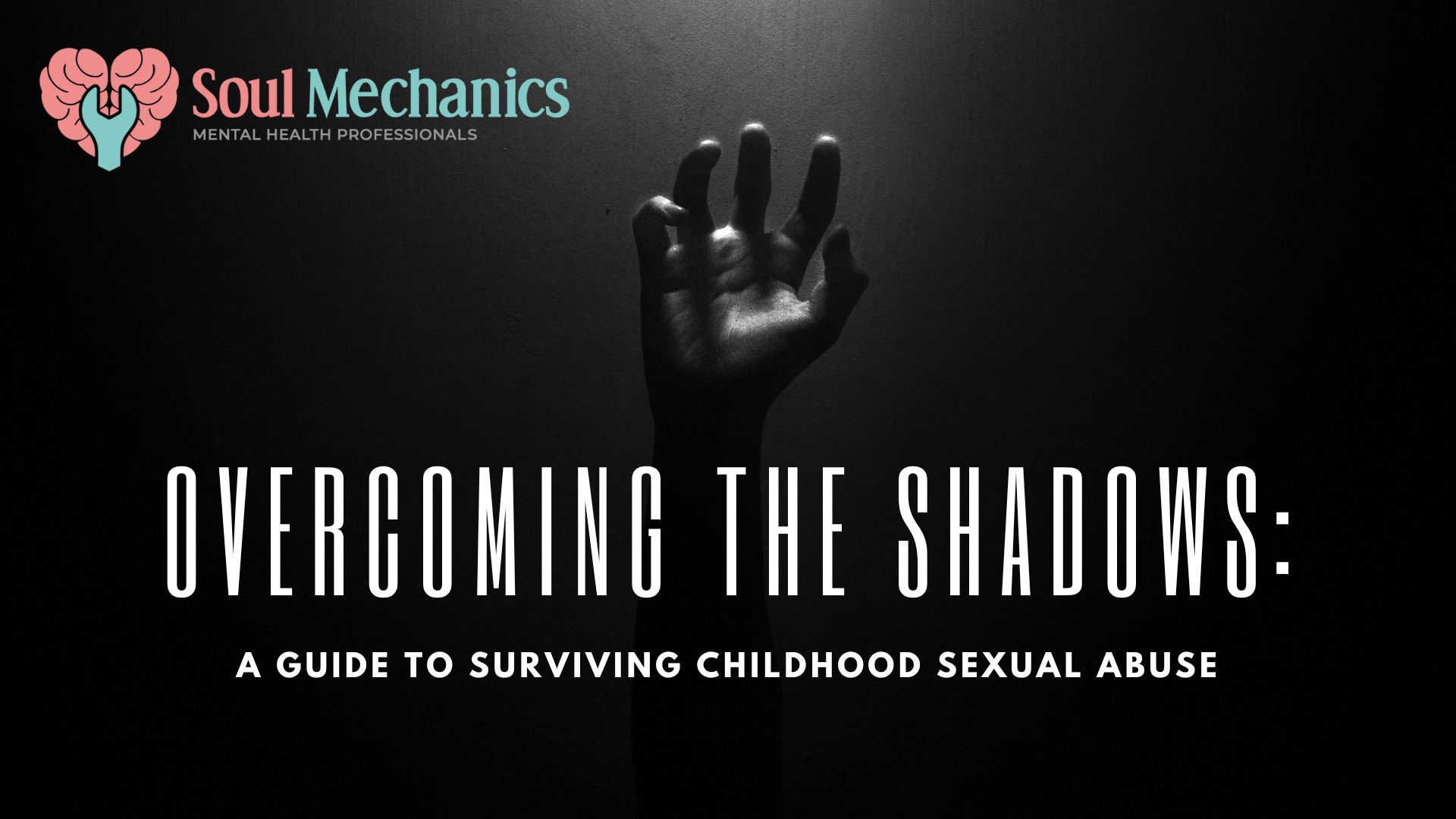A Guide to Surviving Childhood Sexual Abuse
A Guide to Surviving Childhood Sexual Abuse
Written By: Kelly Chan Jia Li, Clinical Psychologist (MAHPC(CP)00353)
Surviving childhood sexual abuse is a journey that no child should endure, yet many individuals face this distressing reality. It is a disheartening journey that can leave lasting scars on an individual’s mental and emotional well-being. The road to healing is complex and often challenging, but it is essential to shed light on this sensitive topic. Hence, this article will explore the multifaceted aspects of surviving sexual abuse to offer insights and guidance on the path to healing.

Understanding the Impact
Childhood sexual abuse can have profound and lasting effects on various aspects of an individual’s life. Imagine a child who, instead of experiencing the joy of early years, is confronted with a betrayal of trust that leaves scars on their soul. The emotional and psychological consequences may manifest in different ways, including but not limited to anxiety, depression, post-traumatic stress disorder (PTSD), self-esteem issues, and difficulties forming trusting relationships. Individuals may experience distressing dreams about the abuse and feel overwhelmed by shame and guilt, believing that the abuse was somehow their fault. These emotions can linger for years and consequently, influence daily decisions and interactions.
Seeking Support
The first step on the healing journey is reaching out for support. Imagine someone who has been sexually abused and, despite the pain and confusion, finds the courage to confide with someone about the experience. Talking about the experience with someone they trust, whether a friend, family member, or counselor, can be a crucial part of the healing process. Many survivors find solace in support groups where they can connect with others who have gone through similar experiences. Psychotherapy, either individual or group, provides a safe space to explore and process the emotions tied to the trauma. This act of disclosure is pivotal in breaking the silence that often conceals childhood sexual abuse.

Attending Psychotherapy
Therapeutic interventions play a vital role in helping survivors cope with the aftermath of sexual abuse. It provides a safe space for survivors to explore and process their emotions. Consider therapy as a toolkit for navigating the complexities of trauma, with approaches like Trauma-Focused Cognitive Behavioural Therapy (TF-CBT) and Eye Movement Desensitization and Reprocessing (EMDR) in helping survivors reshape their perspectives and cope with distressing memories. TF-CBT is often used to address negative thought patterns, beliefs, and behaviors stemming from the trauma. EMDR, on the other hand, focuses on processing distressing memories to reduce the emotional impact on an individual. Therapy can also help build adaptive coping mechanisms that empower individuals to regain control over their lives.
Building Resilience
Survivors often struggle with feelings of shame, guilt, and self-blame. Hence, it is crucial to understand that these emotions are common reactions to trauma. Building resilience involves challenging these negative beliefs and reframing them through therapy and self-reflection. This process allows individuals to recognize negative thoughts, foster self-compassion, and gradually reclaim a sense of agency. Furthermore, learning to be compassionate towards oneself is an ongoing process that contributes to healing. Picture a survivor learning to build resilience as if constructing a sturdy bridge over rough waters.
Empowerment through Education
Education becomes a powerful tool in the survivor’s guide. Educating oneself about the impact of sexual abuse can be empowering. Understanding that the trauma experienced was not the survivor’s fault is a crucial realization. Having to understand the psychological and physiological effects of trauma helps survivors contextualize their experiences and diminish self-blame. Many survivors find strength in learning about the physiological and psychological effects of trauma, which helps contextualize their experiences and reduces self-blame. This knowledge gave them the strength to challenge misconceptions and reclaim a sense of self-worth.
Establishing Boundaries
Many survivors struggle with setting and maintaining boundaries in relationships. Therefore, learning to recognize and communicate personal boundaries is essential to healing. Think of boundaries as personal fences, which are crucial for protection and self-preservation. This process involves gaining a deeper understanding of one’s needs and advocating for them assertively. Survivors learn to recognize and communicate their needs assertively, rebuilding a sense of control over their lives and personal space.
Cultivating Self-Care
Self-care is a cornerstone of healing from sexual abuse. This involves prioritizing one’s physical, emotional, and mental well-being. Engaging in activities that bring joy, practicing mindfulness, and nurturing the body through exercise and a balanced diet contribute to overall wellness. Developing a self-care routine provides survivors with tools to navigate challenging moments and build resilience. These practices can become an anchor for individuals during challenging moments.
Legal Support
Seeking legal support can be a crucial step for survivors, especially when the abuse occurs within a familial or institutional context. Legal avenues can provide a sense of justice and accountability for the perpetrators. It is important for survivors to be aware of their rights and the available resources for pursuing legal action if they choose to do so.
The Guide Towards Healing

Surviving childhood sexual abuse is a journey marked by resilience, courage, and the pursuit of healing. Survivors can gradually reclaim their lives by seeking support, engaging in therapy, and embracing self-care. As each survivor’s healing process is unique, it is essential to approach the healing with patience, self-compassion, and a commitment to personal growth. Let’s discover the strength to confront the shadows of the past and emerge into a future marked by empowerment and hope.
If you find this blog helpful, why not broaden the horizon of knowledge by learning about "Inner Child: The Untold Story of Abandonment"?
You can read the blog here.
For more content related to mental health do follow us on our official Instagram.

